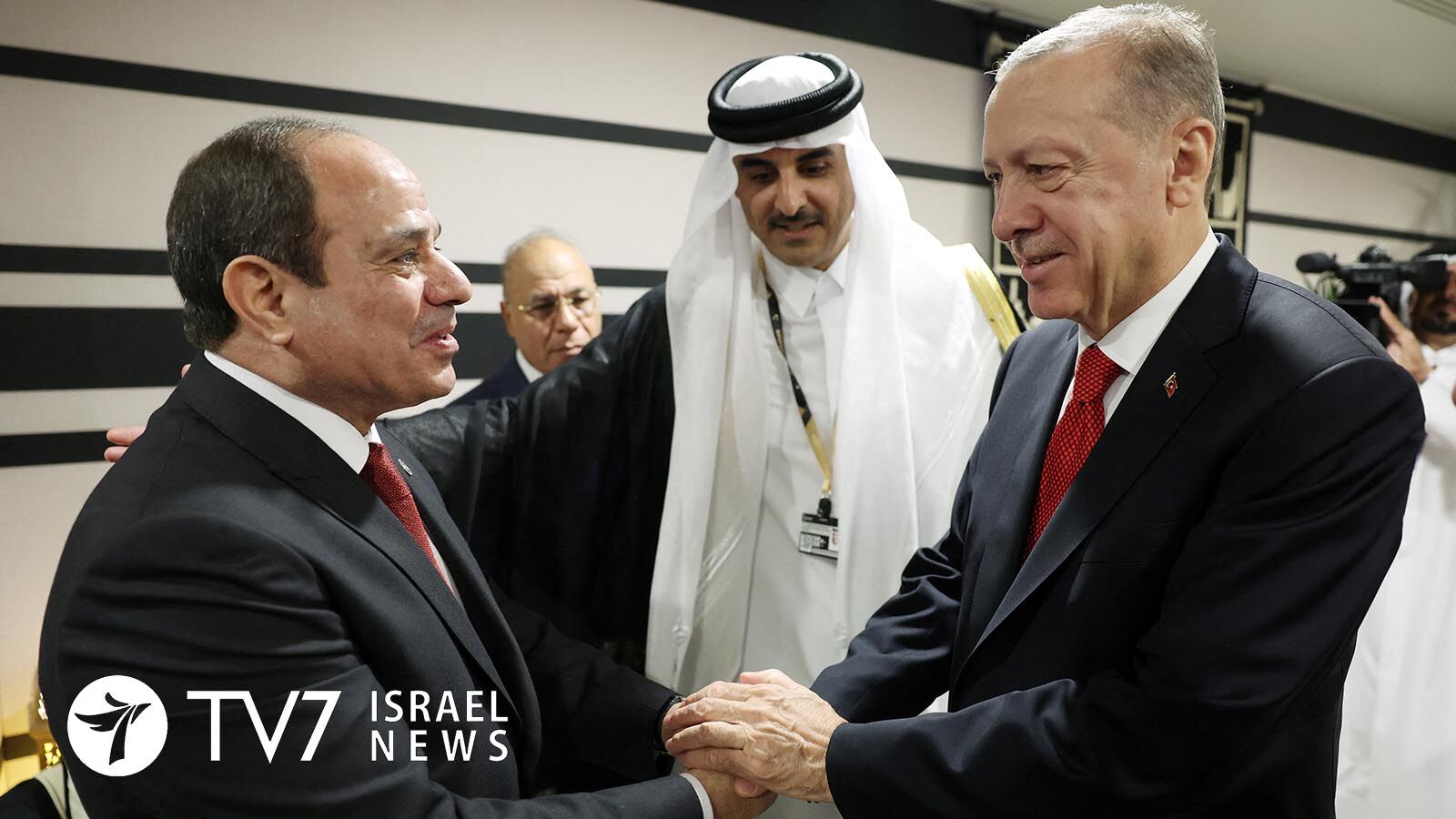Leaders of both countries met briefly at the World Cup in Qatar.
By Erin Viner
The office of Turkish President Recep Tayyip Erdoğan released a photograph taken on Sunday of him shaking hands with his Egyptian counterpart Abdel Fattah el-Sisi on the sidelines of the competition.
The two leaders met briefly, reported Turkey’s state-owned Anadolu Agency, as Erdoğan spoke with Sisi and other leaders, including Palestinian President Mahmoud Abbas and King Abdullah II of Jordan.
There was no immediate comment from Egypt’s presidency.
Relations between Cairo and Ankara have been strained since the Egyptian military, under Sisi’s leadership, toppled Muslim Brotherhood President Mohammed Mursi, an ally of Erdoğan’s, following mass protests in 2013.
While confirming the renewal of ties, Egyptian Foreign Minister Sameh Shoukry indicated that dialogue is limited. “(There is) no communication outside the normal diplomatic framework. If real actions from Turkey show alignment with Egyptian principles and goals then the groundwork will be laid for relations to return to normal,” he said.
Top Turkish officials announced that restoration of diplomatic contact with Egypt in March of last year following consultations between senior foreign ministry officials last year amid push by Turkey to ease tensions with Egypt, Israel, the United Arab Emirates and Saudi Arabia. At that time, Turkish Foreign Minister Mevlüt Çavuşoğlu was cited as saying, “We have contacts with Egypt both on the intelligence level and the foreign ministry level … Contacts at the diplomatic level have started.”
The initiative came in the wake of other unofficial contacts between Egyptian and Turkish security officials on the framework of future communications, while the Ankara’s dispute with other east Mediterranean countries over maritime borders was not raised, according to the sources.
The reinstalling of ties between the two regional powerhouses could have reverberations across the Middle East – where Cairo and Ankara have sought to influence events in various hotspots, including the assumption of opposing sides in the Mediterranean maritime disagreement.
Efforts to reestablish trust will be difficult. In addition to friction over Mursi and the Mediterranean, Foreign Minister Shoukry said last week that the Arab League expressed its “categorical rejection” of Turkish military intervention in Syria, Iraq and Libya.
Israel and Turkey announced the full restoration of diplomatic relations with Ankara in August, after more than decade of acrimony. The process of reparation included the first such visit in over a decade, between Israeli Defense Minister Benny Gantz to the neighboring country, as well those by Israeli President Isaac Herzog’ and reciprocal visits of the foreign ministers to one another’s capitals.
Onetime strong bilateral ties between the Jewish State and its strong Muslim ally were severely damaged by the 2010 Mavi Marmara incident when 10 pro-Palestinian extremists from Turkey were killed after they violently attacked Israeli commandos trying to enforce the naval blockade of the Hamas-run Gaza Strip. Israel later paid Turkey $20 million in compensation as a key component of a deal signed in June 2016 to restore ties.
The row widened again when Erdoğan condemned Israel as a “terrorist state” after 60 Palestinian rioters believed affiliated with the Islamist-Hamas terror group were killed in 2018 by the IDF during violent protests on the Gaza border.
Israel had also accused Turkey of giving passports to a dozen Hamas members in Istanbul in August 2020.
Despite the years of diplomatic tensions, Turkey and Israel have maintained trade, which stood at $6.7 billion in 2021, up from $5 billion in 2019 and 2020, according to official data.
Reviving an idea first discussed more than 20 years ago, Erdoğan has expressed hope of that his economically-challenged nation could work together to with Jerusalem to transport Israeli natural gas to Europe.
